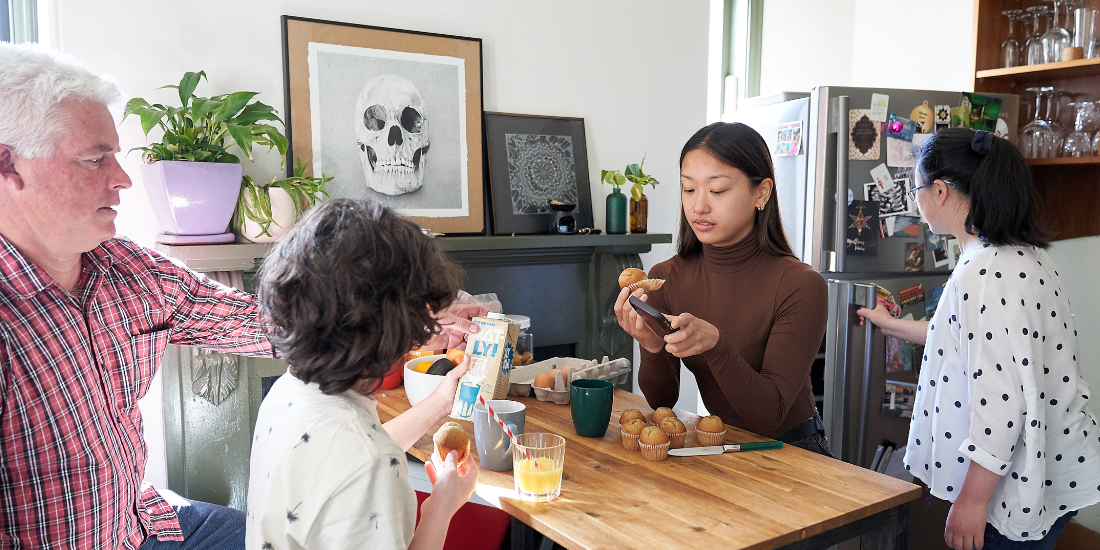
As new restrictions on social media access for those under 16 arrive in Australia, we asked Orygen’s #chatsafe experts what these changes mean for young people – and how we can all stay safe and connected online.
Professor Jo Robinson, head of suicide prevention at Orygen and leader of the #chatsafe program, said, “for most teens, this is a really big change, and it’s normal to feel a mix of emotions.”
“But there are still lots of ways young people can find connection, stay safe and access support online after December 10 – and our #chatsafe team have put together five tips to help young people, parents and carers navigate the changes.”
Professor Robinson said that #chatsafe was developed to help young people stay safe online, and the guidelines continued to be a vital resource despite the new restrictions.
“Our #chatsafe content will still be available via social media platforms as well as the other places young people go online,” Professor Robinson said.
"Wherever young people connect, we will to be there to help them.”
1. Find safe, moderated online forums where you can talk about mental health
There are still safe online spaces where young people can connect and talk about mental health after December 10.
Some examples include:
2. Remember there are free helplines and chat services you can contact
“If you or someone you care about is in a crisis, there is lots of help available,” Professor Robinson said.
“You might not be sure who to talk to, or you might be looking for advice on how to support someone else – but however you’re feeling there are free helplines and chat services you can call to get help.”
In Australia, you can contact:
- Lifeline on 13 11 14 (for everyone, available 24/7, chat service available)
- Kids Helpline on 1800 55 1800 (for ages 12-25, available 24/7, chat service available)
- 13YARN on 13 92 76 (for Aboriginal and Torres Strait Islander people, available 24/7)
- QLife on 1800 184 527 (for LGBTQIA+ people, available 3pm – midnight AEST daily, chat service available)
3. Learn how to stay safe online
#chatsafe researcher Dr Louise La Sala said that one reason for the social media restrictions was to give young people more time to learn how to keep themselves and others safe online.
“Even though some platforms are changing, under-16s will still find ways to connect online - so it’s really important we all understand how to recognise safe and unsafe content, safe conversations and communities, and how to respond when something feels distressing,” Dr La Sala said.
If you’re a young person, you can learn how to keep yourself and others safe online with the advice on the #chatsafe website.
And if you’re a parent or carer, you can learn how to support your young person’s safe online conversations with our free #chatsafe resources.
4. Keep communication open
“Open and calm conversations give young people the chance to voice any negative feelings, and talk about anything distressing they’ve seen online,” Dr La Sala said.
If you’re a young person, remember you can talk about how you feel with a trusted adult: this could be a parent or carer, extended family, or another adult in your community.
If you’re a parent, carer, or a trusted adult in a young person’s life, try to listen first and create a safe space for your young person to open up. You don’t need all the answers: just being there helps.
5. Find offline ways to connect
Without these popular social media platforms, young people might find it hard to connect with friends, or other young people with shared interests.
Finding local, in-person youth groups or clubs is one way to fill that gap, or if you need support with mental health, a local Headspace centre can link you to professional, ongoing support.
“It might be hard to adjust to these changes at first, but with the right support and advice, it’s also a chance to make digital spaces safer and more supportive for young people,” Professor Robinson said.
Find more information
Read all the details about the social media restrictions in the eSafety Commissioner’s Social Media restrictions hub.
Learn more about supporting young people safe online conversations about self-harm and suicide from #chatsafe.
Follow #chatsafe's advice for young people on Instagram and for parents and carers on Facebook.